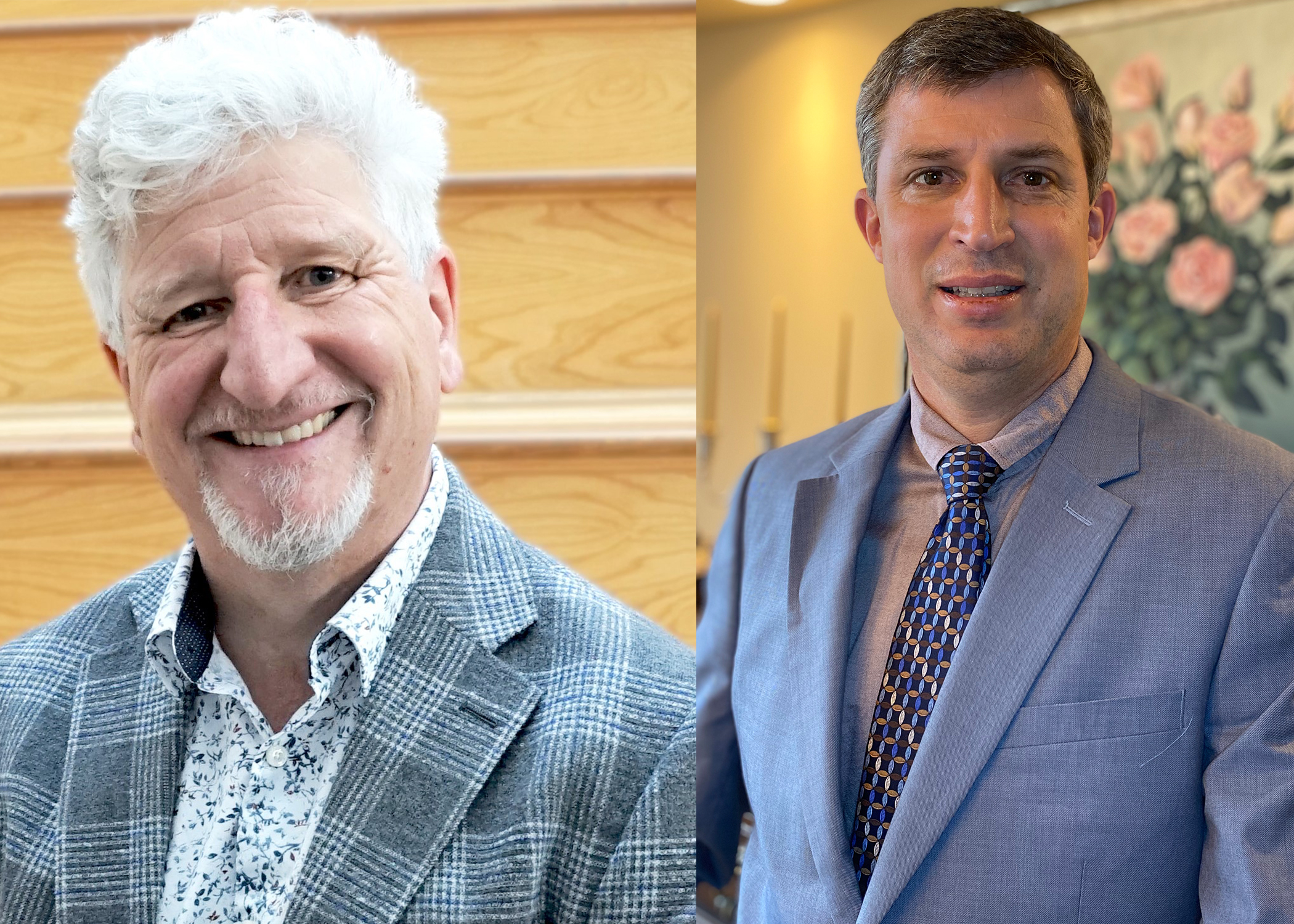Dentistry researchers receive B.F. Dewel Memorial Biomedical Research Award
7 April 2021

Drs. Daniel Graf and Carlos Flores-Mir
School of Dentistry researchers have received the 2021 most meritorious biomedical research award from the American Association of Orthodontics (AAO).
Congratulations to Drs. Daniel Graf, Carlos Flores-Mir and Hamdy El-Hakim on being recipients of the B.F. Dewel Memorial Biomedical Research Award for their project - An exploration into the paradox of midfacial hypoplasia and pediatric upper airway obstruction: probing intrinsic defects in bone/cartilage differentiation.
“The AAO is the most significant funder of research specific to orthodontics in North America. Receiving this award with a project that is strongly-based on foundations research speaks to the appreciation for this type of research,” says Graf, a foundational sciences researcher. “This is great to see.”
This research project aims to understand to what degree bone, cartilage, and suture anomalies contribute to midfacial hypoplasia. Midfacial hypoplasia happens when the upper jaw, cheekbones and eye sockets have not grown as much as the rest of the face.
“The project is primarily about understanding why these craniofacial growth insufficiencies occur. Understanding this will help with more precise diagnosis and with finding new, and better, treatment options,” says Graf. “Earlier and more efficient treatment will give better long-term outcomes and alleviate co-morbidities.”
“By building a deeper knowledge and understanding on how facial changes and formation affect midfacial hypoplasia will allow for better personalized treatments for patients,” says Flores-Mir.
“Some craniofacial defects or altered growth significantly impact aesthetics and function, and quality of life. Early identification is preferred as there is more to avoid negative consequences,” says Flores-Mir, adding sleep-disordered breathing (SDB) in pediatric patients is getting more attention because its impact is significant. Midfacial hypoplasia is one of the leading anatomical factors linked to SDB.
“The effects of altered breathing are broad. Cardiovascular function, school performance, chronic inflammation are known effects. As the upper airways are inside the craniofacial complex and a common cause of breathing obstruction happens in the upper airways, dentists and orthodontists can be a crucial player in screening for high risk of OSA. In selected cases, orthodontic interventions, namely maxillary expansion, maxillary or mandibular advancement, can improve the upper airway function.”